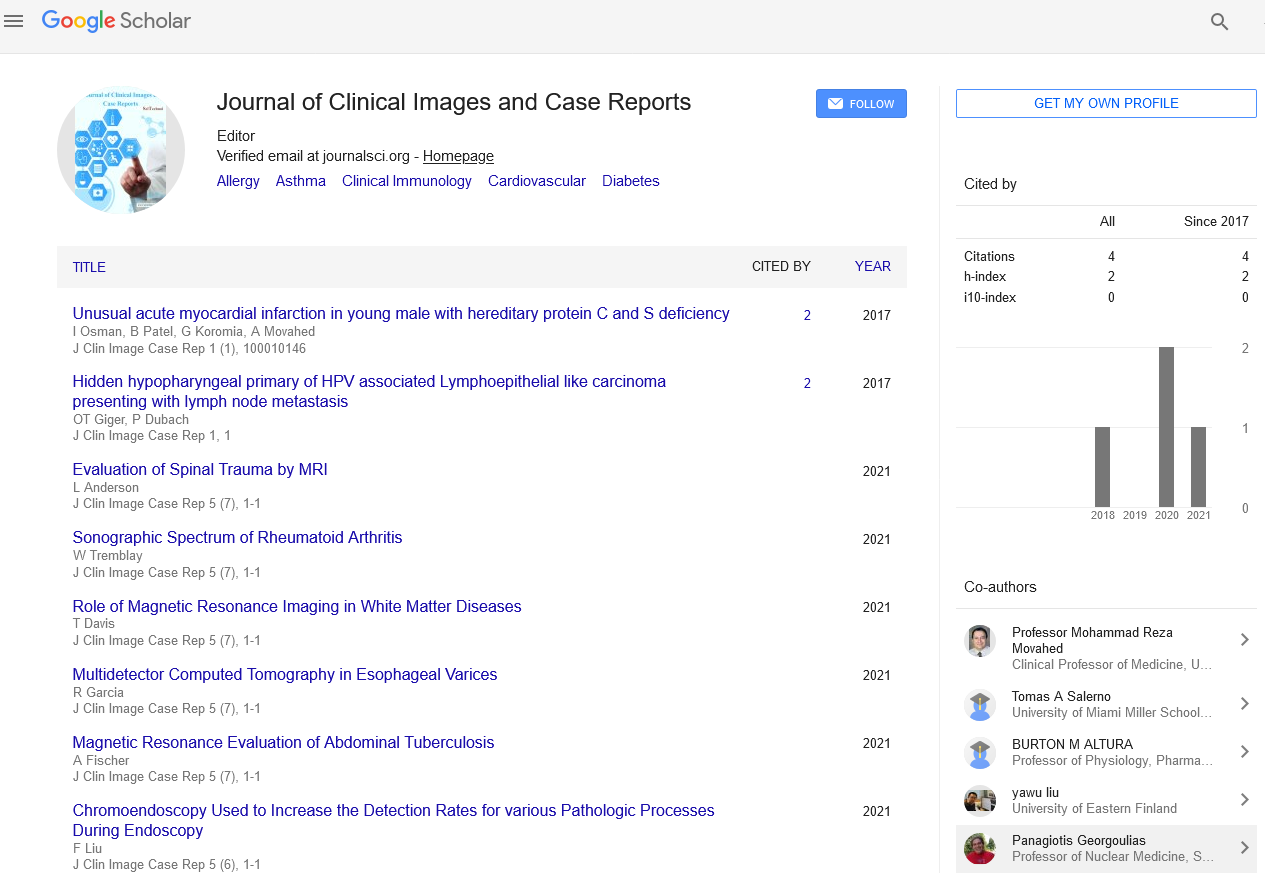Commentary, J Clin Image Case Rep Vol: 8 Issue: 6
The Impact of Genetic Mutations on Cell Cycle Control
Joner Holdenrie*
1Department of Genetics, Leiden University, Leiden, The Netherlands
*Corresponding Author: Joner Holdenrie,
Department of Genetics, Leiden
University, Leiden, The Netherlands
E-mail: holdenriejoner@gmail.com
Received date: 26 November, 2024, Manuscript No. CICR-24-156437;
Editor assigned date: 28 November, 2024, PreQC No. CICR-24-156437 (PQ);
Reviewed date: 12 December, 2024, QC No. CICR-24-156437;
Revised date: 19 December, 2024, Manuscript No. CICR-24-156437 (R);
Published date: 26 December, 2024, DOI: 10.4172/CICR.1000341.
Citation: Holdenrie J (2024) The Impact of Genetic Mutations on Cell Cycle Control. J Clin Image Case Rep 8:6.
Description
The cell cycle is a fundamental process that ensures the orderly division and replication of cells, a difficult aspect of growth, development and tissue repair. The cycle is meticulously regulated by a network of proteins and checkpoints to maintain genomic stability and prevent abnormal cell proliferation. Genetic mutations that disrupt these regulatory mechanisms can have significant consequences, leading to uncontrolled cell division and, in many cases, cancer. Understanding the impact of genetic mutations on cell cycle control provides important observations into the development of cancer and other proliferative disorders.
At the core of cell cycle regulation are proteins such as cyclins and Cyclin Dependent Kinases (CDKs). These molecules work in tandem to ensure that cells progress through the different phases of the cycle G1, S, G2 and M only when conditions are favorable. Checkpoints, such as the G1/S and G2/M checkpoints, act as safeguards, halting the cycle if DNA damage or other irregularities are detected. Tumor suppressor proteins like p53 and Retinoblastoma Protein (RB) play a pivotal role in these checkpoints, ensuring that cells do not divide under potentially hazardous conditions.
Genetic mutations that affect these regulatory proteins can compromise cell cycle control. For instance, mutations in the TP53 gene, which encodes the p53 protein, are among the most common alterations in cancer. Loss of p53 function impairs the cell's ability to respond to DNA damage, allowing mutations to accumulate and promoting genomic instability. Similarly, mutations in the RB1 gene disrupt the RB protein's ability to inhibit cell cycle progression, leading to unchecked cellular proliferation.
Oncogenes, which are mutated forms of normal genes (protooncogenes), also play a significant role in disrupting cell cycle regulation. Mutations in proto-oncogenes such as MYC and RAS lead to their constitutive activation, driving excessive cell growth and division. These mutations override normal cell cycle checkpoints, further contributing to the development of cancer.
Another difficult aspect of cell cycle dysregulation is the role of chromosomal instability, which often results from mutations in genes involved in DNA replication and repair. Defects in mismatch repair genes, such as MLH1 and MSH2, can lead to an accumulation of DNA errors during replication, a indicator of many cancers. Similarly, mutations in genes involved in homologous recombination repair, such as BRCA1 and BRCA2, increase susceptibility to DNA damage and chromosomal abnormalities.
The impact of genetic mutations on cell cycle control extends beyond cancer. Mutations in genes regulating the cell cycle are also implicated in developmental disorders and neurodegenerative diseases. For example, mutations in CDK5 have been linked to neurodegeneration, as this kinase plays a role in neuronal development and function. Advancements in molecular biology and genomics have significantly improved our understanding of how genetic mutations affect the cell cycle. These insights have led to the development of targeted therapies aimed at restoring cell cycle control in cancer cells. CDK inhibitors, for example, are a class of drugs designed to halt the proliferation of cancer cells by blocking the activity of specific CDKs. Similarly, therapies targeting the DNA damage response pathways, such as PARP inhibitors, exploit the vulnerabilities in cancer cells with defective repair mechanisms.
While significant progress has been made, challenges remain in translating our understanding of cell cycle dysregulation into effective treatments. Cancer is a heterogeneous disease and the specific mutations driving cell cycle disruption can vary widely among patients. Personalized medicine approaches, which involve tailoring treatments to the genetic makeup of an individual's cancer, hold promise for addressing these challenges. Genetic mutations that disrupt cell cycle control have far-reaching implications, contributing to the development of cancer and other diseases. By analyzing the molecular mechanisms underlying these mutations, researchers are initiating the process for innovative therapies that restore normal cell cycle regulation and improve patient outcomes.
 Spanish
Spanish  Chinese
Chinese  Russian
Russian  German
German  French
French  Japanese
Japanese  Portuguese
Portuguese  Hindi
Hindi 